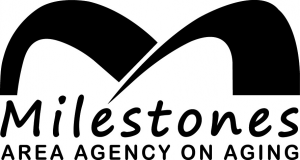June 1, 2021
June is Elder Abuse Awareness Month
 By Mike Mathews
By Mike Mathews
Milestones Area Agency on Aging
June 15 is World Elder Abuse Awareness Day. This recognition day was launched on June 15, 2006 by the International Network for the Prevention of Elder Abuse and the World Health Organization. It provides an opportunity for communities around the world to promote a better understanding of abuse and neglect of older persons by raising awareness of the cultural, social, economic, and demographic factors that impact elder abuse and neglect.
Elder abuse is an intentional act or failure to act that causes or creates a risk of harm to an older adult. An older adult is someone age 60 or older. The abuse often occurs at the hands of a caregiver or a person the elder trusts. Elder abuse can mean physical and psychological harm, but it also may manifest through financial exploitation and theft.
Nearly 1 in 10 Americans age 60+ are abused or neglected each year, yet only 1 in 14 cases of elder abuse is brought to the attention of authorities, according to the U.S. Department of Health & Human Services.
Common types of elder abuse include:
- Physical abuse is when an elder experiences illness, pain, injury, functional impairment, distress, or death due to the intentional use of physical force; it includes acts such as hitting, kicking, pushing, slapping, and burning.
- Sexual abuse involves forced or unwanted sexual interaction of any kind with an older adult. This may include unwanted sexual contact or penetration, or non-contact acts such as sexual harassment.
- Emotional or Psychological Abuse refers to verbal or nonverbal behaviors that inflict anguish, mental pain, fear, or distress on an older adult. Examples include humiliation or disrespect, verbal and non-verbal threats, harassment, and geographic or interpersonal isolation.
- Neglect is the failure to meet an older adult’s basic needs. These needs include food, water, shelter, clothing, hygiene, and essential medical care.
- Financial Abuse is the illegal, unauthorized, or improper use of an elder’s money, benefits, belongings, property, or assets for the benefit of someone other than the older adult.
Sadly, 60% of elder abuse perpetrators are reported to be family members of the victim, according to the Nation Council on Aging. As such, many of these cases go unreported.
The Adult/Elder Abuse Prevention and Awareness (EAPA) Program at Milestones advocates for, and seeks to protect, elder abuse victims. EAPA staff work to empower individuals to sustain – or regain — their independence, and present solution-based options to help vulnerable individuals live in safety. It is a responsive program that accepts all referrals concerning elder/adult abuse, neglect, or exploitation.
The Milestones Adult/Elder Rights Specialist collaborates with community providers, and educates and informs individuals of the various services and supports available to them. Adult/Elder Abuse Awareness presentations are also available to community groups and organizations. By creating awareness and taking appropriate action, we can take positive steps towards elder safety.
What can you do? If you suspect abuse, neglect or financial exploitation of a vulnerable adult and want to discuss the situation, call the Adult/Elder Rights Specialist at Milestones Area Agency on Aging, 1-855-410-6222. If the situation is an emergency, dial 9-1-1.
To learn more about Milestones Area Agency on Aging and the programs we offer, please visit milestonesaaa.org.
Filed Under: Community, Family, Health & Wellness
Trackback URL: https://www.50pluslife.com/2021/06/01/june-is-elder-abuse-awareness-month/trackback/


